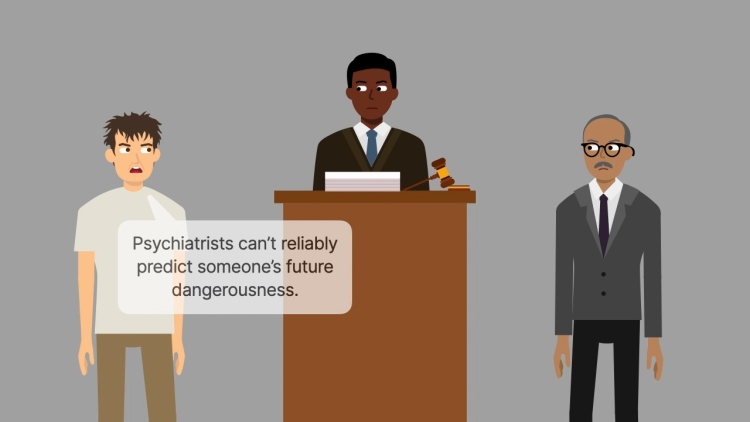Barefoot v. Estelle
United States Supreme Court
463 U.S. 880, 103 S.Ct. 3383, 77 L.Ed.2d 1090 (1983)
- Written by Whitney Kamerzel , JD
Facts
After Thomas Barefoot (defendant) was convicted of murdering a police officer in Texas, a sentencing hearing was conducted in front of a jury to determine whether Barefoot would receive the death penalty. The prosecution (plaintiff) called two psychiatrists to testify even though they had never examined Barefoot before. The psychiatrists answered hypothetical questions about Barefoot and testified that he would probably continue to be violent and represent a threat to society. The jury imposed the death penalty. Barefoot appealed, arguing that (1) psychiatrists cannot predict the future actions of defendants with accuracy, and (2) psychiatrists cannot decide future dangerousness by answering hypothetical questions without having examined the defendant.
Rule of Law
Issue
Holding and Reasoning (White, J.)
Dissent (Blackmun, J.)
What to do next…
Here's why 907,000 law students have relied on our case briefs:
- Written by law professors and practitioners, not other law students. 47,100 briefs, keyed to 996 casebooks. Top-notch customer support.
- The right amount of information, includes the facts, issues, rule of law, holding and reasoning, and any concurrences and dissents.
- Access in your classes, works on your mobile and tablet. Massive library of related video lessons and high quality multiple-choice questions.
- Easy to use, uniform format for every case brief. Written in plain English, not in legalese. Our briefs summarize and simplify; they don’t just repeat the court’s language.





